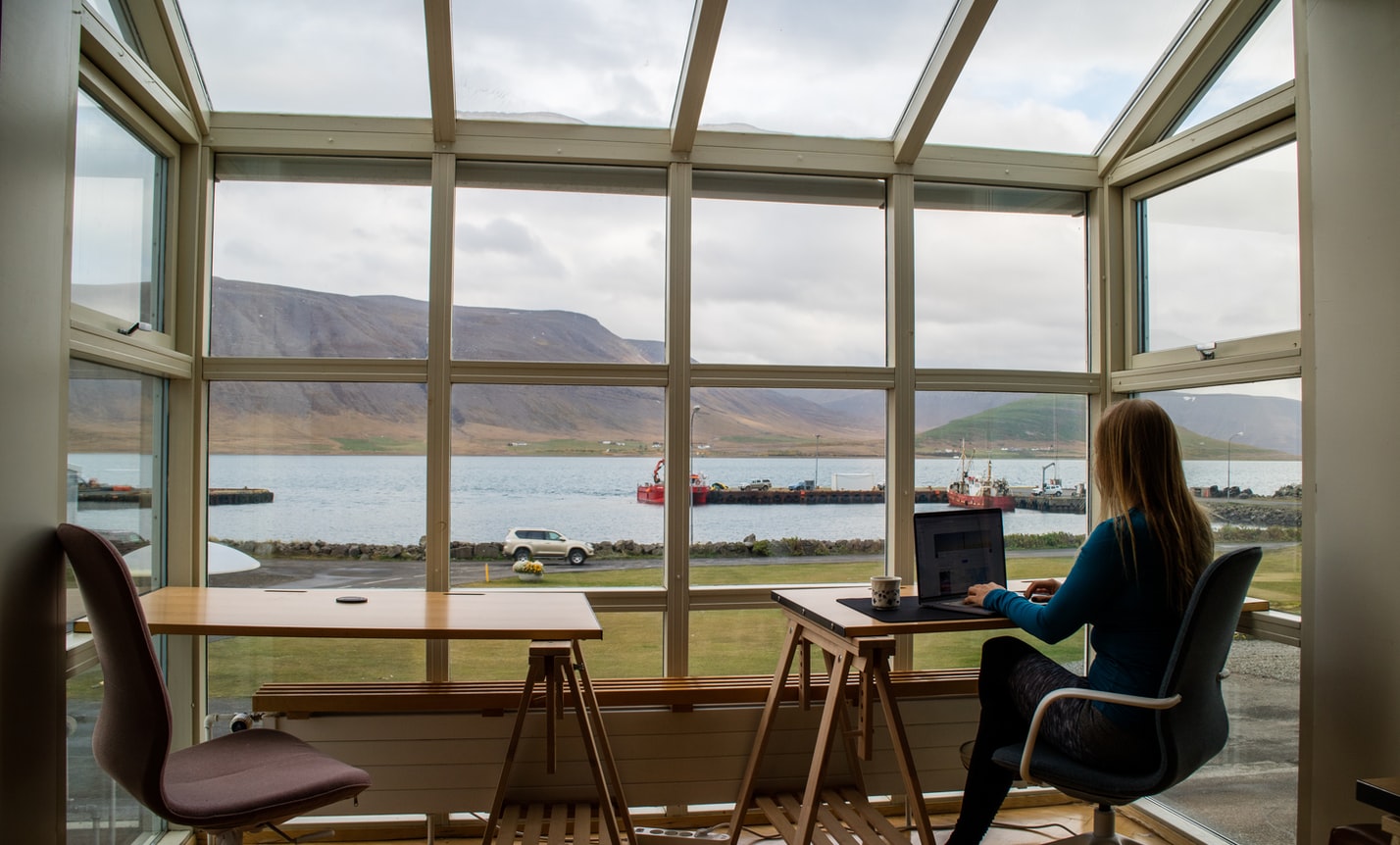Coping in lockdown and strategies for the “new normal”, by Stephen Gregory
In a series of postings Stephen Gregory considers how the COVID-19 pandemic has impacted on GKIM, and what we can take from this challenging period to help us navigate the future. This first posting considers strategies for working from home successfully.
On the evening of Monday 23 March 2020 the UK Government introduced lockdown public health measures to minimise the transmission of the COVID-19 coronavirus, including a clear “stay at home” requirement (https://www.bbc.co.uk/news/uk-52012432 ). As Tuesday dawned the UK woke to a radically different economic, working and social environment. Overnight many GKIM staff will have jumped into long-term working from home, as well as possibly home-schooling children, juggling caring responsibilities and very different circumstances in which to support family members, friends, work colleagues and to look after themselves. Some colleagues may have been able to draw on prior experience of regular or occasional home working to help them manage this transition. For others it was literally diving in at the deep end.
 |
| Image source: Pixabay |
We have all needed to adjust to these new conditions. This posting captures some of the key coping strategies and tips that have enabled GKIM colleagues to master working from home. These tips may be of continuing relevance as the pandemic evolves, and as working practices embed to the “new normal”.
Keep a routine. Work regular hours. Focus on maintaining a positive work-life balance.
- This may be really difficult if you are looking after children, home schooling or have taken-on increased caring roles. You may need to agree an unconventional working pattern that works for you, and that can be accommodated by your organisation.
- When you are not in work do not be tempted to check for new emails or think through challenges in your role. When not working have discipline to disengage from work.
- This may mean developing routines around working: when you exercise; socialise; when you work; and when you wind-down and wind-up. Remember to take regular breaks during your working time, including a proper lunch break, and stay hydrated. One colleague reflected “…when I work at home I am very bad at sitting down to work at 9am ish (I don't do mornings!!) and not really moving again until 6 or 7pm, even eating lunch in front of the laptop. Taking regular breaks away from your work space is so important!”.
- Part of the routine might also mean adopting a suitable working from home dress-code. This may well be more relaxed than if you were attending the office in person, but do you really want to have that Skype discussion with your line manager in your PJs?
- For many of us “working to live, not living to work” may have been a difficult balancing act to maintain during lockdown. Acknowledge that the usual escape and wellbeing mechanisms, the activities and hobbies that you usually undertake outside of work, may not be available to you under lockdown, or may be severely constrained. Try to develop adaptations that help maintain your work-life balance, and your general wellbeing. Is this an opportunity to revive former hobbies, to try something new, or make progress with a longer-term personal project? But be realistic in your expectations.
Set up the best “workstation” that you can, given your current circumstances.
- Can you set-up an ergonomic workstation so that you do not endanger your health and wellbeing? Can you re-purpose the spare TV to become your desk monitor? Does it make sense to try to get hold of a keyboard and / or a mouse and to use these in conjunction with your laptop? (Many employers have supported the purchase of essential workplace equipment during lockdown, so it is worthwhile investigating what support you may be entitled to). Do you need to alternate where you work, to have some time standing up, or to use a variety of chairs and desks or tables throughout the working day? Can you vary where you work according to what you are doing? Perhaps less formal video conferences can be taken from the comfort of your favourite arm chair?
- Do you work on sensitive or confidential materials which mean you really need to be out of direct sight of other family members?
- Will regular video-conferencing mean that you really need to locate to a quiet place in your home. Where will you be happy video-conferencing from, or can your VC platform substitute neutral or blurred backgrounds?
- Do you put all of the work kit away at the end of the day so that you regain your home environment, or at least shut it off behind a closed door?
Be kind to yourself.
- Do not over-work because there is little else to do! Pace yourself. You are possibly working harder than you would usually be because of the lack of distractions. Or conversely, you are struggling to get into your personal “work zone” because it is too quiet, it is too noisy, the kids are home, you are home schooling, your family members have conflicting activity patterns, next door is undertaking constant DIY or noisy work in the garden. You may also be battling with inadequate broadband speed or an unreliable connection, low-spec IT, or an organisation that has not been able to respond to the technological needs where most of its employees are now working from home.
- Acknowledge that some days in lockdown will feel really difficult, lonely, dark or frustrating. This is a tough time and one that we have not experienced before. We are all still trying to find and develop our own coping mechanisms. Some days we will be stronger and more productive than others. Similarly acknowledge that everyone’s experience of lockdown, remote working and changed priorities is likely to be very different.
 |
| Image source: Unsplash |
- Workloads and pressures of work may have changed overnight. GKIM services that usually manage to meet work needs during normal times may be experiencing extremely high demands on their services. At these times your collective prioritisation, planning and communication skills are going to be essential. Conversely, this may be a time when your workloads have dramatically declined as direct results of the changing organisational priorities. Can you volunteer to assist on urgent priority areas during this time? This could provide you with valuable experiences, new ways of working, a whole new network of contacts, and a great entry for your CV? Can you use this downtime to make improvements at work, to catch-up on some training and development, or undertake projects that were previously not considered urgent or important enough? In both circumstances you will need to recognise the impacts that workload demands are having on you, and actively take steps to maintain and promote your health and wellbeing.
- Consider taking annual leave or flexi-leave, especially if you have been working at pace for long periods of time. But also make plans for when lockdown restrictions end.
- Deal with the things that you can change. Recognise the things that you cannot, and be kind to yourself.
Re-affirm or build new support mechanisms.
- If at all possible be open and honest with your line manager about “where you are at”, how you are feeling, what your energy levels are like. A good line manager will help you prioritise your workload, be realistic about expectations, help and encourage you to be your best. Your line manager may also signpost sources of support, or just share their past experiences with you - narratives to give you hope, strength or to see the humour in things.
- Regular check-ins with your line manager can ensure that priorities remain appropriate, provide opportunities to explore issues and challenges and to discuss possible solutions. Check-ins can provide a space for feedback, and most helpfully for reflection and re-direction. If you line manage colleagues then you should also be prioritising time to contact and support them.
- Is this a time when coaching or mentoring might be useful to you? Can your organisation support you in this? Alternatively, do you have a trusted colleague who you could meet with regularly to discuss your current circumstances, to help you identify and overcome the challenges, to recognise the successes and to guide you in what might be coming next?
- Keep in touch with your colleagues and work contacts. Informal conversations with your work contacts are so useful on a range of levels. These chats can help to build and maintain your confidence, re-direct or re-energise you, or provide you with a new view on the world, a realisation of new priorities or understanding.
- Recognise the importance of keeping in touch with your team colleagues socially as well as through usual team meetings. In one organisation:
o Microsoft Teams Chat has been used for informal “sign-ins” and “sign-outs”, sharing social updates, alerting colleagues to IT issues, or important organisational news.
o Microsoft Teams Whiteboards have been used to craft unique birthday greetings to colleagues, and also used to rapidly capture team thoughts and ideas about specific matters.
o Weekly social “coffee catch-ups” by Microsoft Teams provide a chance to briefly relax, to surface from intense work, and to re-connect with colleagues and often with their pets, gardens or hobbies.
 |
| Image source: Unsplash |
Effective self-management
- You may be working independently much more of the time, so your own time management skills are going to be crucial. Actively manage your diary. Schedule in time for work that you know you need to complete, but also schedule in the catch-up / down times. This may also help your colleagues know when they can contact you and when to leave you in peace.
- Breakdown large pieces of work into more manageable tasks and use project management techniques to help keep you on track. Write to do lists and manage them appropriately. However do not let the organisation and planning of your work outweigh the actual doing time. Recognise when you might be procrastinating and take steps to overcome this.
- You may be working remotely, but you probably are not working in isolation. Is there work that you can share, delegate or conduct in small teams? Do you need to schedule more regular progress updates with colleagues in order to mark your progress, to seek help with the challenges, and to help keep on track?
We welcome your ideas, experiences and comments! Have you found other tips and strategies helpful in working your way through lockdown? What has helped you, or what have you found challenging? Please share your experiences: add a comment to this posting, or drop us a line.
We would also like to compile a range of “potted summaries” on how you or your service has managed during lockdown. This will help provide an historical record of this significant period. Please do contact us on info.gig@cilip.org.uk or on Twitter @gig_cilip https://twitter.com/gig_cilip with your content, comments and ideas.
The next posting will begin the thinking on what we can learn and take forward from lockdown and what might help us to survive and thrive in “new normal”.





AcademiWales (a public sector management and leadership development organisation) have recently published guidance on working from home alone which may be of interest. https://academiwales.gov.wales/Repository/resource/5ec2e937-04c7-47c9-a88e-e8209498ecd9/en
ReplyDelete